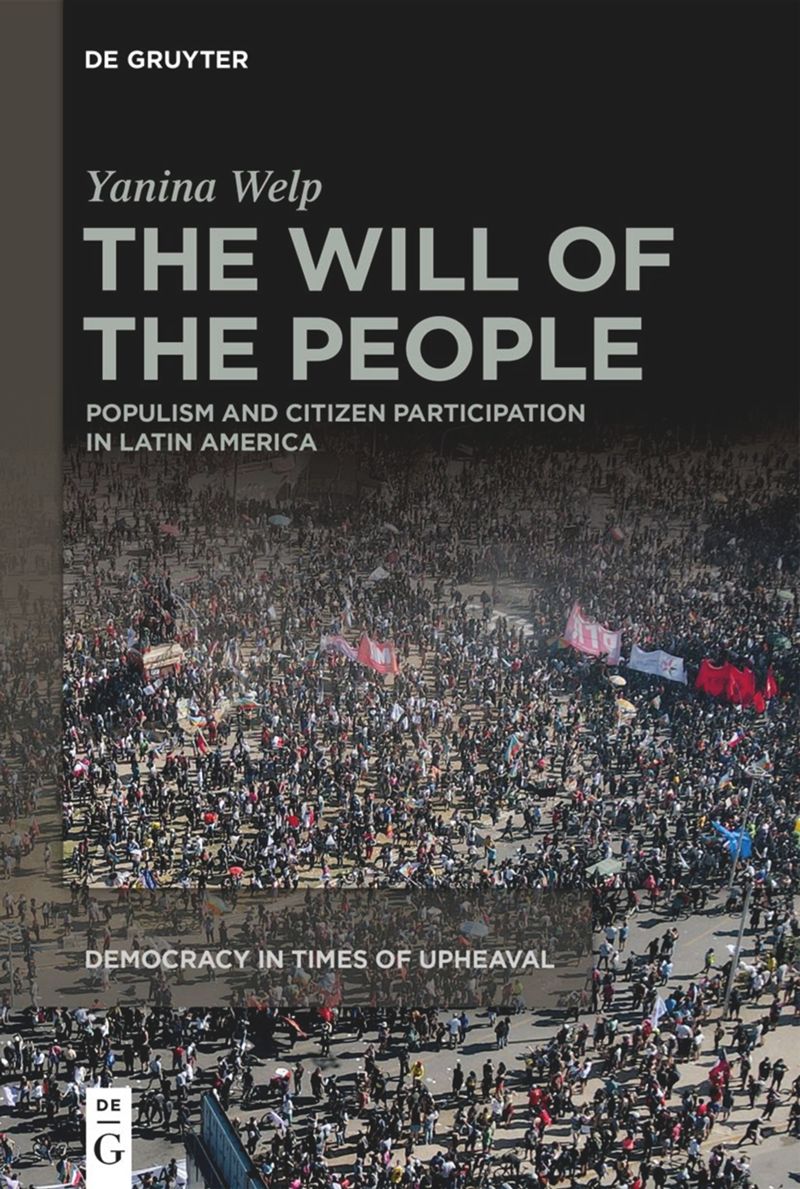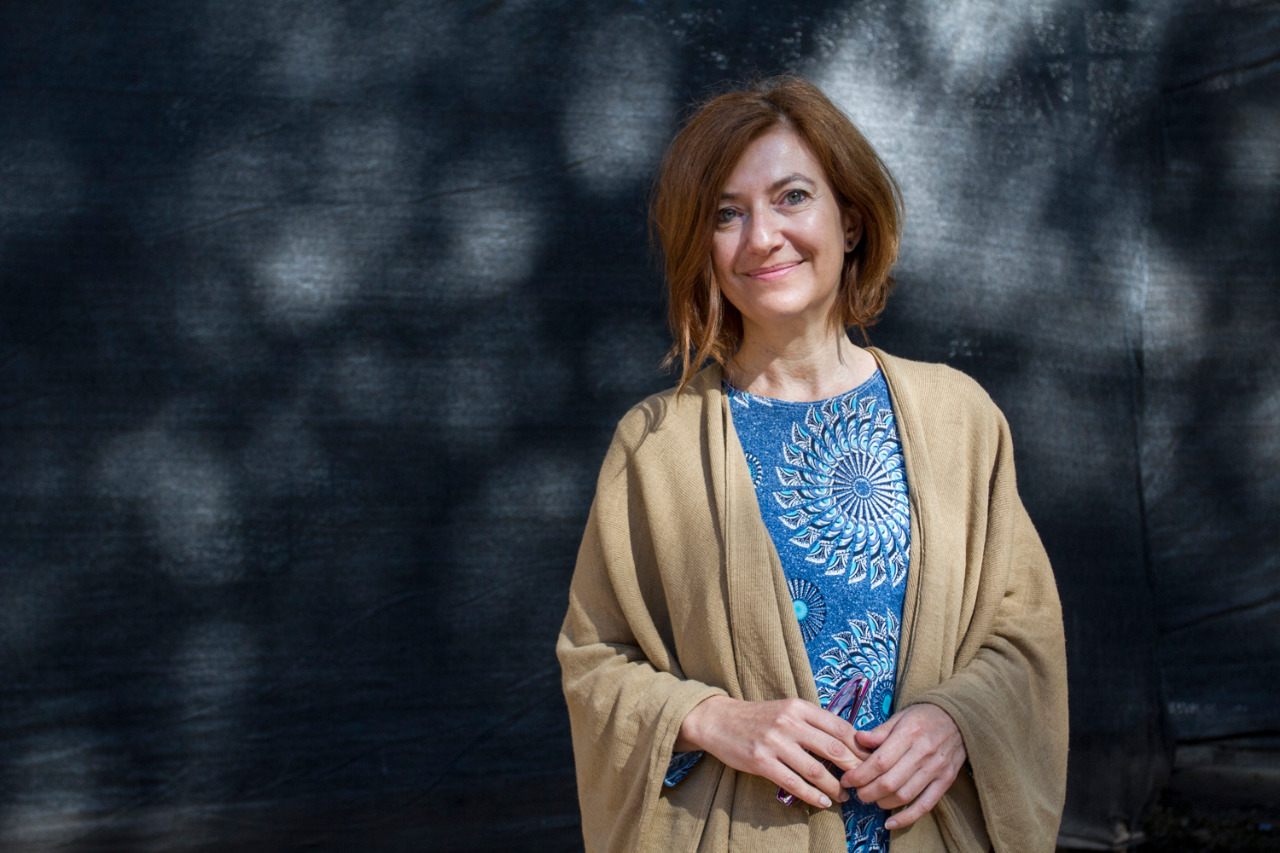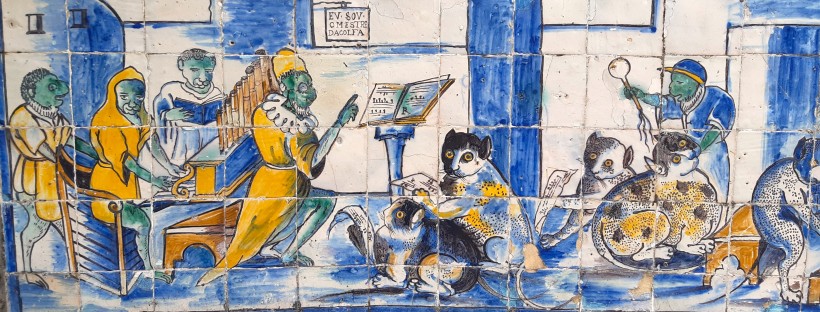In conversation with Yanina Welp, we discuss some of the topics present in her last book: The will of the people. Populism and citizens participation in Latin America. Latin America is a region where populism is prolific and often appears with characteristics that are different compared to European populism.
POP already devoted several interviews and articles about populism in Latin America and in comparison with Europe, with a focus on the Andes region and Brazil among other things, and if you are interested in Latin American populism you can find much more content in The Populism Interviews, including an amazing interview to Federico Finchelstein.
In today’s interview we discuss the inclusion of the people’s will in populist political projects across Latin America, instances of controlled mobilisation, the importance of trust in institutions and among people, dissatisfaction with democracy, democratic political culture, the role of political parties, and much more.
Enjoy the read.
1) Before we start, can you tell us how you got interested in the study of populism? Is there any author or work that particularly inspired you?
I was born in Argentina. There, the conversation about populism is strongly connected with the conversation about Peronism, a top-down movement created by Juan Domingo Perón, a military that arrived at the presidency after World War II. During his two first presidencies (1946-55) his government managed to open the system to include social and political rights (the feminine vote, for instance, was included in the Constitution of 1949) while reducing checks and balances, battling with the judiciary and limiting freedom of expression and academic freedom. It was a very complex period which ended with a coup d’état. I think that the Argentinian experience produced a more complex understanding of populism compared to the typical “criminalisation” of populism that ignores the factors producing it.
Nowadays there is a renovated interest in the proliferation of different radical proposals of change quite often led by charismatic leaders and based on emotional and divisive discourses. There is a tension about the notion of populism in Europe (more based on describing it as a style of government) and Latin America (traditionally more connected with a popular political project to reject elitist versions of liberal-democracies-in-paper).

2) To take truly democratic decisions, we need to include the will of the people, as your new book’s title reminds us. Populism, by definition, claims to listen to the people’s voice: is populism the only way to include the volonté générale into the democratic process or direct participation can exist also in non-populist contexts?
I don’t think that all the populist experiences we have seen in power (from Orbán in Hungary to Correa in Ecuador) have truly included or listened to the will of the people. I think populist leaders sometimes (not always) manage to incarnate the expectancies of massive sectors of a given population that for a while support them. But this connection is not really based on political participation: this connection rather relies on weak forms of ratification or controlled mobilisation.
The experience of Hugo Chávez in Venezuela exemplifies the extent to which populist leaders activate referenda to advance their agendas against the existing institutional constrains that limit their power (when they do not have a majority to change constitutions, for instance) but they do not allow this participation when it does not strongly align with their preferences. It happened for instance with the recall referendums against Nicolás Maduro, that was blocked twice despite the process of collecting signatures was completed.
3) As you mentioned, in Latin America populist movements, parties, and leaders have been shaping democratic practices since the 1940s. What do you think we can learn for global democracy by looking at Latin America in particular?
The main lesson is that democracy cannot be sustainable just with formal institutions. The welfare of the population matters, and high inequalities and lack of basic goods and services (such as education, health…) are not good scenarios to sustain democracy or to defend democracy against its detractors. Besides, the erosion of trust and the weakness of social capital promotes the conditions under which messianic proposals can received support. It is a dramatic scenario, as shown by Daniel Ortega in Nicaragua today.
4) While populism claims to represent the real spirit of democracy because it embodies the popular will, it also shares some elements with fascism which is non-democratic by definition. For example, points of contact between populism and fascism concern rule of law, the absence of pluralism and separation of powers, distrust in intermediary bodies like parties and media, the lack of constitutional protection for minorities. Where do you think that populism stands in this relationship between democracy and fascism?
I think the notion of populism has been growing and growing and now there are different families that somehow are included in the notion of populism but may not help to understand clearly which kind of phenomenon is expanding globally. What is expanding globally is the dissatisfaction with current democracies and a discourse that rejects pluralism and recognition of diversities.
The radical right is close in some ways to fascism but not all the expressions defend similar forms of corporativism as fascism did. If we move to left-wing populism the difference with fascism is even clearer. I think nowadays populism is a challenge that acts within the framework of democracy while introducing into the system a lot of tensions and paradoxes.
5) Linked to the same topic: what happens when a populist movement, leader or party, takes the power democratically but then creates a system where the elections are neither free nor fair? Can we still speak of populism, or in non-democratic settings it no longer makes sense in autocratic contexts?
In my view populism puts in tension the democratic system: it arrives to power via elections and it doesn’t always manage (or want) to change the system and destroy democracy. When it happens, the populist leader is not populist anymore and the system needs to be defined as a non-democratic one, as is the case in Venezuela, Nicaragua and El Salvador.
So no, it no longer makes sense to talk about populism in these autocratic contexts.

6) Going back to one of the central arguments of your book: what are the long-term consequences of excluding the people from democratic decisions? Is it going to fuel populism, for example, or will it simply facilitate democratic erosion and backsliding towards autocratisation?
Excluding the people from democratic decisions is wrong, but also its opposite, to include them through direct democratic decisions, can be problematic. Direct democracy and referenda are an option, but real inclusion can only stem from a feeling of trust towards political organisations and institutions that represent the people. Therefore, I think that the problem of many contemporary democracies is not the lack of mechanisms of direct democracy for the participation of the citizens, but rather the erosion of trust. And it is a fundamental problem because trust is weaker nowadays not only towards political organisations, parties, and institutions, but also among the people. Low levels of trust have dire consequences: collective action becomes unlikely to happen and policies can’t be changed without collective action, representation, and participation.

In 2022, and in line with the Zeitgeist, Muse released an album titled Will of the People, including the title track that goes: “Let’s push the emperors into the ocean, The will of the people, the will of the people… (…) We’ll smash your institutions to pieces, The will of the people, the will of the people…”
7) Populism is, in many ways, a paradoxical phenomenon. One of the most controversial aspects, in my opinion, is that while claiming to represent the popular will, populist leaders often take decisions that have nothing to do with the will of the people. How do you explain this paradox? And do you see any possible solution to it or is it an inherent characteristic of populism?
I think this issue you describe is quite a prominent characteristic of populist leadership and the frame it imposes on every policy: if something is true, the rest must be false. The populist frame is about good Vs bad, hence there is no interest in debating and interpreting political debates, policies, and different positions. In a way, the moral dimension of populism neglects politics. Therefore, at least at the symbolic level, democracy gets lost. The problem does not only concern populist leaders, however. I feel that, at the global level, the public debate is more and more based on moral frames than on political frames, de-politicizing many issues. Populist leaders are constrained by institutions and social culture: hence, the best strategy consists in doing all we can to improve democratic political culture.
8) Overall, do you think that political parties can still play a relevant role for the future of democracy, or will they become obsolete and be replaced by other types of organizations? In other words, and to cite Peter Mair: has the age of party democracy really passed?
Call it as you want: political parties, political organisations, or new political movements. But I think that contemporary societies need the aggregation of interests and the generation of new proposals and ideas to improve the life conditions of their citizens. In some systems political parties need to be reformed, in other systems they would need to improve their practices, sure. But a democracy without organised interests would for sure be quite difficult to manage and would eventually become prejudicial to the most vulnerable people.

Yanina Welp (@Welpita) is Research Fellow at the Albert Hirschman Centre on Democracy. Between 2008 and 2018 she has been principal researcher at the Centre for Democracy Studies and co-director of the Zurich Latin American Centre (2016-2019), both at the University of Zurich. Her last book is The will of the people. Populism and citizens participation in Latin America (De Gruyter 2022).

